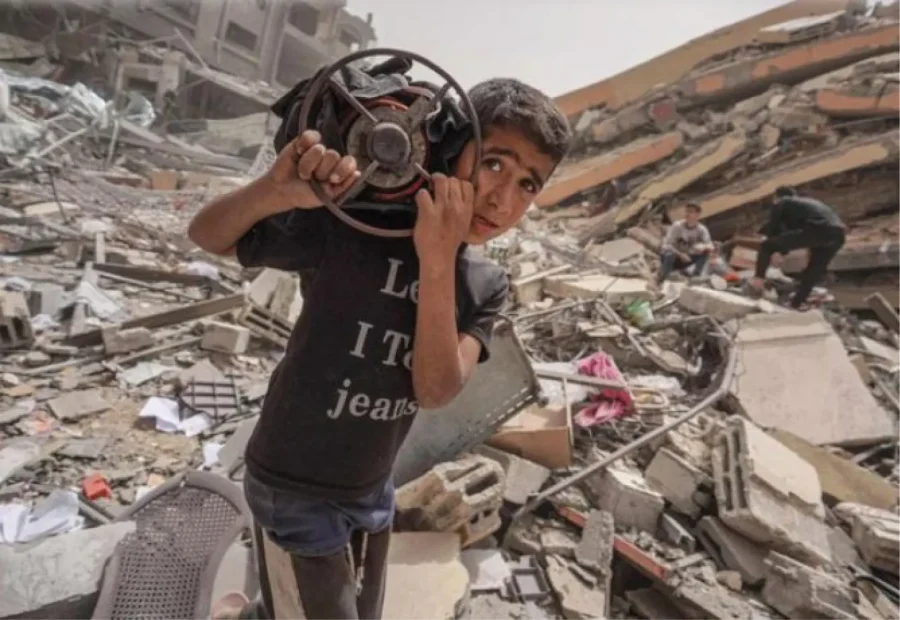Israel launched more deadly strikes on besieged Gaza on Thursday as world powers watched nervously whether the country would retaliate against a weekend attack by its arch enemy Iran. The Israeli army said it had bombed dozens of targets in the Palestinian coastal territory of 2.4 million people, more than six months into the bloodiest ever Gaza war.
Weeks of talks toward an Israel-Hamas truce and hostage release deal have stalled, according to Qatar’s prime minister who said the Gulf emirate was now “reassessing our role as mediator.” Israeli Prime Minister Benjamin Netanyahu, who has vowed to destroy Hamas over its October 7 attack on Israel, also stressed on Wednesday that Israel “reserves the right to protect itself” against Iran.
The Islamic republic last weekend carried out its first ever attack to directly target its regional foe but Israel, backed by its allies, intercepted most of the 300 missiles and drones and suffered no deaths. Iran’s attack was retaliation for an April 1 air strike, which it blamed on Israel, on the consular annex of its embassy in Damascus.
The international community has urged de-escalation since Iran’s attack on Israel which came after months of high tensions and violence involving Israel and Iran-backed groups in Lebanon, Iraq, Syria and Yemen. “We are on the edge of a war in the Middle East which will be sending shock-waves to the rest of the world,” EU foreign policy chief Josep Borrell said ahead of a G7 meeting in Capri, Italy.
Iran has warned of “a fierce and severe response” if Israel launches any further attacks after seven of its Revolutionary Guards died in the consular strike. However, Tehran had also sought to calm tensions through indirect diplomatic channels with its other major adversary, the United States, which is Israel’s top ally and military supplier.
Foreign Minister Hossein Amir-Abdollahian, in New York for a UN meeting, said Iran had “tried to tell the United States clearly” that it is “not looking for the expansion of tension in the region.” Washington has made clear it won’t join any Israeli attack on Iran, but has pledged to instead impose new punitive sanctions against Iran.
The European Union on Wednesday said it would impose new sanctions on Iran’s drone and missile producers. Israeli public broadcaster Kan said Netanyahu, after discussions with US President Joe Biden, decided not to proceed with pre-arranged plans for retaliatory strikes on Iran.
“Diplomatic sensitivities came into play,” a senior Israeli official told Kan, speaking on condition of anonymity. The official added that there would be a response, but that it would be different to the one initially planned.
US broadcaster ABC News, citing three unnamed Israeli sources, reported that Israel had “prepared for and then aborted retaliatory strikes against Iran on at least two nights this past week.” Among the range of possible responses considered by Israel were an attack on Iranian proxies in the region or a cyberattack, the sources told ABC.—AFP










